36 years of slow, delicious expat life in France
🇫🇷 A Q&A with cooking teacher, author and mentor Kate Hill, 72, who runs a creative residency and writes full-time in Southwest France
This is one in a series of Q&As with [B]old Women about their life and their writing. If my writing resonates with you, I’d love to have you as a paid subscriber. Your support helps me continue the work of writing that matters, to me and to you. As a paid subscriber, you will have access to my most personal essays and to Ask Debbie, where I answer readers’ practical and existential questions about [b]old age.
“Being bolder as I enter a new decade, the seventh, takes on a different stance… I can be more deliberate now and less reactive. Perhaps a bit more vulnerable, but that’s not really my comfort zone. Instead, I prefer to continue to present a brave face and lead by example. ” -
I consider myself a Francophile; I fell in love with the country and culture after an impressionable school year there when I was 14, and have taken countless trips all over France ever since, but Kate is the real deal. I am in awe, and even envious, of how deeply her life is intertwined with French culture and food, and how embedded she is in her rural community as well as attracting students and guests and food critics and photographers and camera crews from around the world.
She’s also a marvelous writer and, in addition to being the author of multiple cookbooks, has just completed Finding France, a Memoir in Small Bites, the culinary memoir she serialized1 each week on Substack this past year.
Before her life in France, Kate grew up in Hawaii, and then lived and worked in the U.S., Africa, and Europe. She was an art dealer, a puppeteer, a baker, a yacht chef, and a restauranteur; ultimately she and several friends bought an antique Dutch barge that she named the Julia Hoyt2. She captained the barge from Holland through the inland waterways of France and up the Canal de Garonne where, in 1988, she found Camont3, her home in Gascony. For years she offered culinary tours to guests on the Julia Hoyt4. Today she lives in the barn adjacent to her restored, vine-covered farmhouse, with its one-acre garden, 18th century kitchen, pigeonnier5, and rooms to rent for the Relais de Camont creative residencies. It sounds—and looks—like heaven on earth.
DW: What drove you to be an expat for more than half your life; was it always intentional or was it a string of circumstances?
KH: I never intended to stay so long…in France or anywhere. But each time I looked forward, I saw a few more things I needed to investigate, another season–just one more spring; another ingredient in the kitchen–did I really know everything about foie gras? It’s been a long lovely dance living in the French countryside.
DW: Three years ago you decided to retire from one career (a cooking school and a gastronomic tour business) and switch to another: running a creative residency and doing your own writing. Tell us why and also what made you decide to write a memoir?
KH: After two very intensive years of teaching online during the pandemic (and making over 70 videos in my kitchen!), I was ready to retire from in-person and online teaching. I had always wanted to devote more time to writing–not just cookbooks, but stories, a novel, murder mysteries! It seemed that writing a memoir was a way to tie up the last thirty years of my life, learning to cook and teach French regional, especially Gascon, cooking… I wrote the memoir “live,” posting basically once a week, a series of stories, portraits and recipes files. Now, I will compile all the words and pictures and see if it will sell as a book.
DW: You have turned your home, the Relais de Camont, into a writers’ and artists’ retreat. How does that fit into your own writing life and how has it affected your creative output?
KH: Most of the time it is a wonderful inspiration and a good fit. I leave the residents to themselves, as far as their own work and living schedules, being on hand to help out as needed: a train ticket here, a shopping excursion there. Since I prefer to write very early in the morning, when Camont and the surrounding countryside is at its quietest, I am often the only one awake. Bliss! I, too, am often inspired by my guest residents and the exchange with other international creatives of all genres is energising on an ongoing basis. The world comes to me here.
Of course, there is a five-bedroom house and one-acre garden to manage with the help of an assistant, a working resident, and hired help. I am the working ‘curator’ if you will and manage the campus so we all have an inspiring and peaceful environment in which to work.
DW: What is your morning routine? Do you journal? Do you have rituals around writing for Substack?
KH: I like to get up as soon as I am alert, hit the kitchen to make coffee, let the dog out and the cat in, and then share some breakfast with them both while reading the news online. If not too bound by chores, I will write three to four times a week for the rest of the morning, asking everyone to wait until lunch to assault me with problems to solve.
For my Substack, I write rough drafts in a Google Doc at my desktop computer, not stopping until I am starving! Once I have a good rough draft, I move it to Substack and then refine and edit, add photographs, always my own, and send off after a final read through, usually after lunch. Although there are some days I can complete an entire draft and push publish in one day, I usually break my writing up into broad strokes and rough edits one day, then further edits, photos, and hit publish the next.
DW: What’s it like being an older expat? Is it different than when you were younger? Do you speak French fluently?
KH: Hah! Well I’ve been an expat over half of my life so I don’t see that as anything so different really. Yes, of course, when I was younger and had few expectations, other than adventure, I inhaled everything I could–from language and culture to geography and food. Everything was bright and shiny and I reveled in the freedom to dig as deeply as I wanted to into a culture not my own. Somewhere along the way, I became fluent in French, and I still enjoy learning new things and ways to express myself.
Now, being [b]older, I am just as open to leaping first and then looking for the net, or building one! Witness the last three years of establishing a writers’ residency. I am most grateful to “la belle France” for the generous acceptance of writers and other creatives as a valid and valued occupation.
DW: How do you think being an expat in France has shaped your outlook on aging or your experience of aging? Do you think you'd feel differently if you were living in the U.S.?
KH: The culture of family and community in France has definitely shaped my ideas of aging. The value of elders, a comfortable place in healthcare, and a caring community that I contribute to, from neighbors to students, have made me choose to stay here in France for my later years. To still be valued for my productivity and experience with my colleagues, and to hold a space for the next generation, passing the baton if you will, is part of my next projects. I fear that the shunting of elders aside in the US—dedicated Senior living projects, for example—wouldn’t fit my style.
DW: What’s your favorite part of reaching [b]old age? What’s the biggest surprise?
KH: I am surprised at how easy it is to slow down now, not just physically, but let myself unwind and relax, nap, read, and just take some quiet time for myself or to call and chat with friends. It’s like a little late gift to be able to spend some hours in observation rather than making new work.
DW: Do you consider yourself ambitious? Has your ambition changed as you’ve gotten older?
KH: Yes, in a backhanded kind of way, I have always had a goal to achieve, that kind of ambition. And yes, I still do! I want to continue to record my stories of learning to cook in France as a way to share those life lessons, as well as try new things, and be recognized for that.
DW: Looking back, what is one thing you are especially proud of?
KH: Most recently, it would be surviving the pandemic by making a quick swift pivot even while mourning the loss of my sister at that time. Pushing myself to go live, online, Instagram live chats, cooking videos, and maintaining a working clientele during those tough times, and basically on my own, here isolated at Camont. With the help of a designer friend I published 12 magazine-style monthly books and put my other books online as ebooks6 and print on demand. And, of course, recreating the Relais de Camont as a new way of sharing the peace and quiet of this charming place with fellow writers.
DW: What is your biggest regret when it comes to life or writing?
KH: “No regrets,” as Edith Piaf sang. I let myself follow my dreams and go as far and deep as I could.
DW: What does [B]OLD AGE mean to you?
KH: Being bolder as I enter a new decade, the seventh, takes on a different stance. Rather than movement driving my energy (travel, adventure, anything new, new, new!), I let there be more spaces between my actions, as much for accommodating mobility issues (damn knees!) as to allow the time to reflect on what is happening. I can be more deliberate now and less reactive. Perhaps a bit more vulnerable, but that’s not really my comfort zone. Instead, I prefer to continue to present a brave face and lead by example.
Kate, thank you for a peek into your magical, slow world of French cooking and food and writing and markets and changing seasons in Gascony. And for inviting me for a brief visit in October to see Camont with my own eyes! I am looking forward to that more than I can say. - Debbie
Questions for readers
Have you considered a significant career change later in life, even if it means tightening your belt?
Are you more or less courageous now, than in your youth, about making big life changes?
If money were no object, where is a place you would up and move to tomorrow?
More Q&As with [B]old Women
Kate named her barge after the intrepid early 20th century American actress Julia Hoyt.
Camont is on the Canal de Garonne in the village of Ste. Colombe-en-Bruilhois, between Toulouse and Bordeaux.
A pigeon house, or dovecote, is a classic French outbuilding.
![[B]OLD AGE with Debbie Weil](https://substackcdn.com/image/fetch/$s_!i8Z0!,w_80,h_80,c_fill,f_auto,q_auto:good,fl_progressive:steep,g_auto/https%3A%2F%2Fsubstack-post-media.s3.amazonaws.com%2Fpublic%2Fimages%2Fdaaca764-d8d6-4a1b-bf58-61dbb72810fc_842x842.png)
![[B]OLD AGE with Debbie Weil](https://substackcdn.com/image/fetch/$s_!fEcd!,e_trim:10:white/e_trim:10:transparent/h_72,c_limit,f_auto,q_auto:good,fl_progressive:steep/https%3A%2F%2Fsubstack-post-media.s3.amazonaws.com%2Fpublic%2Fimages%2F95ad4442-e435-4ebc-a8d2-9c9b89a8bdb6_2100x400.png)
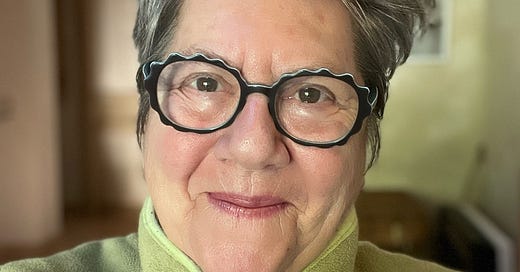
![[B]OLD AGE with Debbie Weil](https://substackcdn.com/image/fetch/$s_!i8Z0!,w_36,h_36,c_fill,f_auto,q_auto:good,fl_progressive:steep,g_auto/https%3A%2F%2Fsubstack-post-media.s3.amazonaws.com%2Fpublic%2Fimages%2Fdaaca764-d8d6-4a1b-bf58-61dbb72810fc_842x842.png)



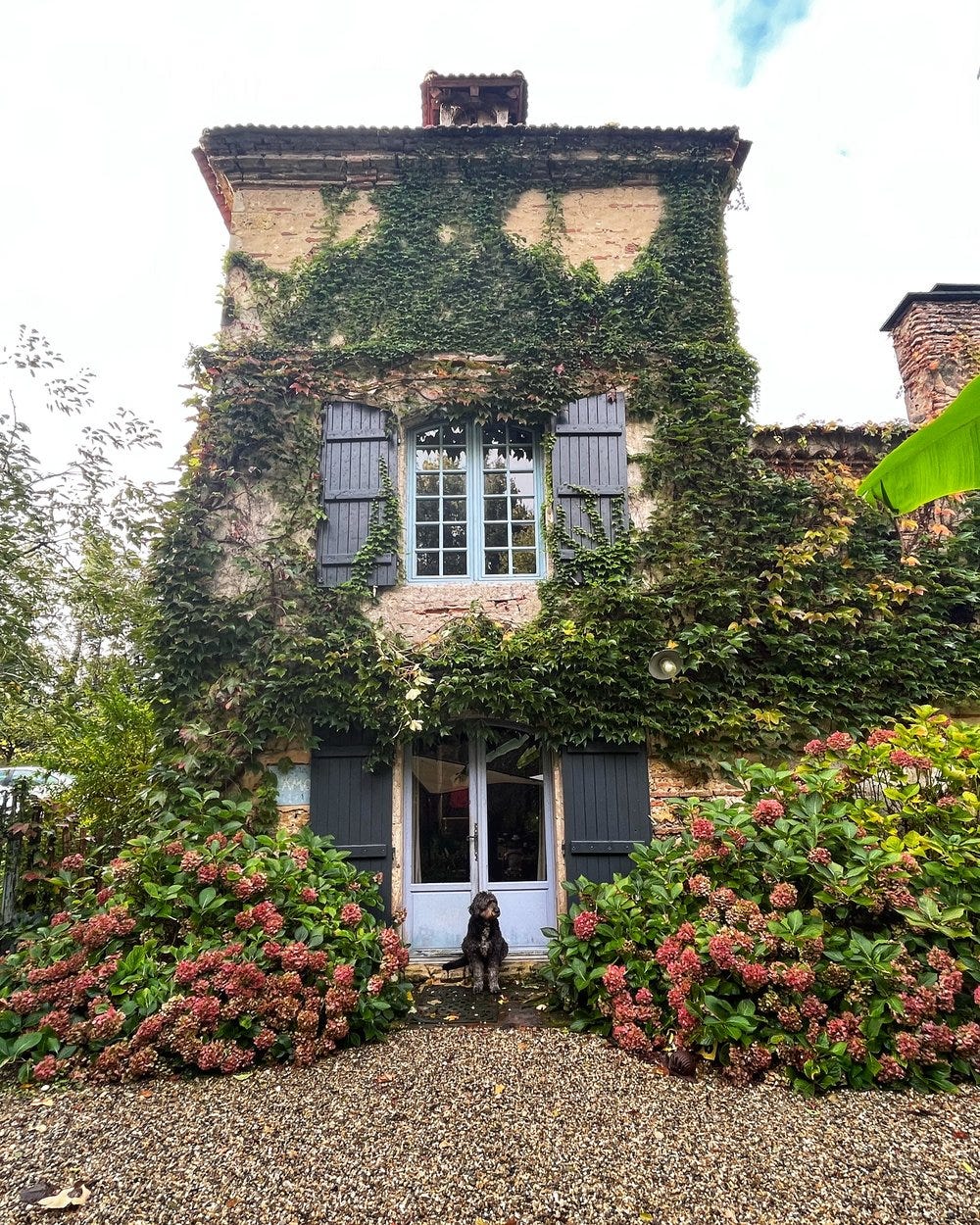
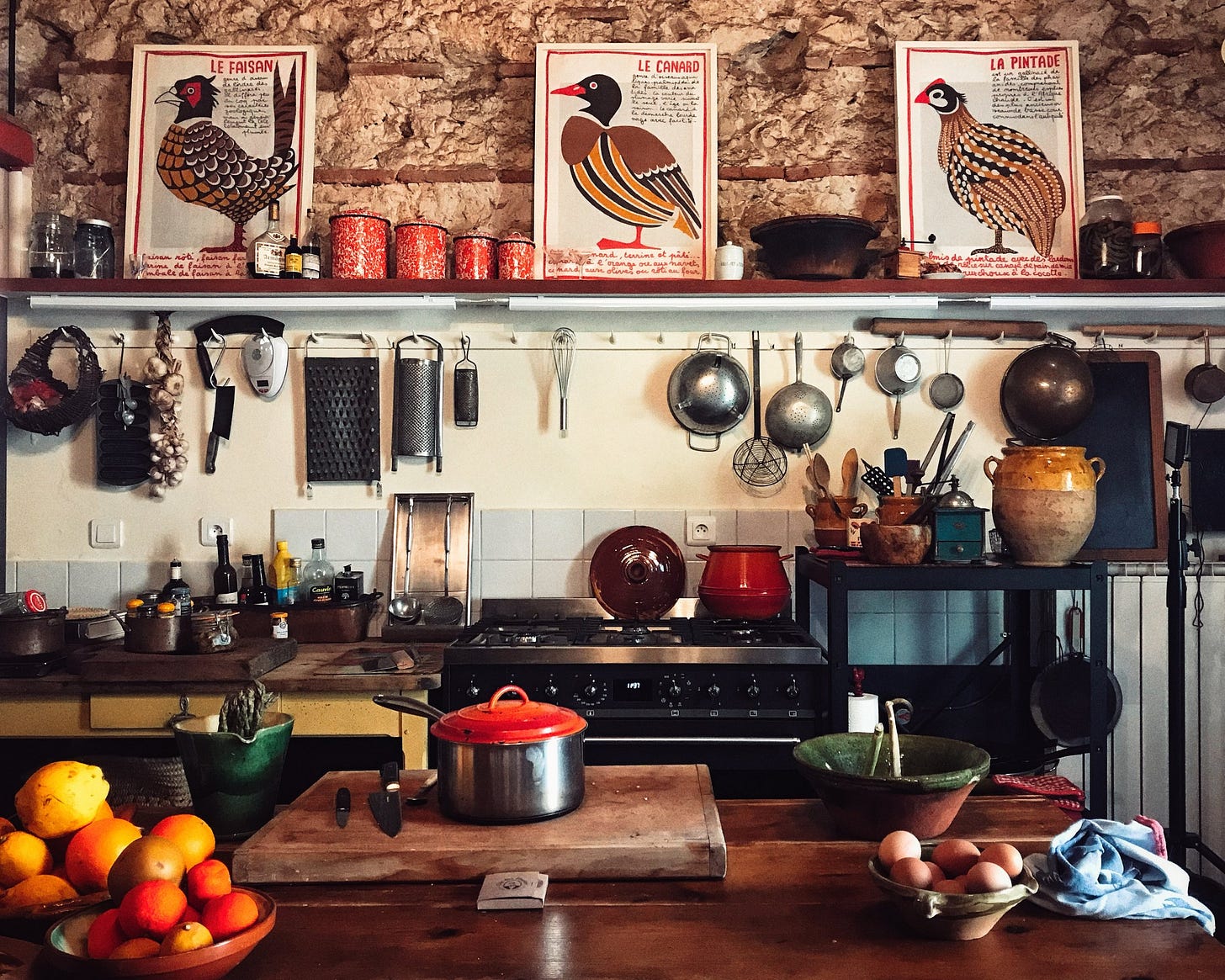


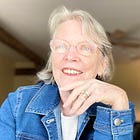

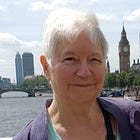

Great interview! Thank you, Debi and Kate.
As to your questions: 1. at 47. I am in the process of making a career change that is absolutely requiring me to tighten my belt. Eeek. And wooooooot! All at once. 2. I don’t know if I find myself more or less courageous only courageous in different ways about different different things. I am more cautious about letting loose whenever the whim calls. I am less cautious about exploring the folds of my heart. 3. if money were no object, I would 100% start my world tour now.
Loved the questions too. ❤️🌏
Love, love, love reading the take of long-time US expat in France (as a French expat in the US)!